“bringing situations like mine into the light will help create the change”
We have a long way to go in our work of deconstructing oppressive systems, and one of the most challenging aspects of doing this work is being able to look at the pain these systems have already caused and are actively causing. It’s being able to listen to one another’s most difficult stories and do so with courage and compassion, without giving up our hope for the future. We can let these stories be lit as beacons to guide our way. We can let them be lit as a fire that drives us forward.
On today’s episode we hold spare for hard stories.
As a caution for listeners, these stories will include explicit discussions of physical and sexual abuse, child marriage, domestic partner violence, and self-harm — and we recognize that this subject matter won’t make for easy listening. But we hope you’ll stay with us because these stories not only spread knowledge and challenge our empathy, they also help us understand how women and nonbinary people can persevere through hardships and still share a light with the world.
We’re so grateful to be joined by Red O’Hare and Susan Warren who each share stories of survival.
Our Guests
Red O’Hare

Red O’Hare (she/her) is a human. She was born in Northern California, grew up in Southern California, and now currently lives in the Pacific Northwest where she works in a pub. She invited Pauly Shore to her Bat Mitzvah, but he didn’t come.
Susan Warren (she/her) is a dancer, artist, former teacher and now mentor, surviving late stage ovarian cancer and a pandemic by splashing around in watercolors and dancing in her front yard garden. She loves greeting neighbors at her gate and a good cup of tea.
Susan Warren
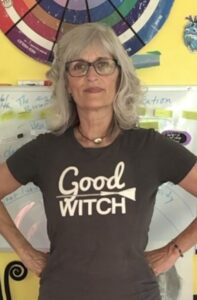
PART ONE.
Red O’Hare
There are a lot of things that concern me in respect to men and their mental health.
There are no domestic violence shelters for men, and when a man is a victim of domestic violence it is culturally regarded as a joke. Men’s mental health is something seen as an afterthought. The concept of “manning up”, is destructive. Even my arguably “woke” father, he still thinks therapy is just another way of transferring addiction or codependency.
I say all that, to say this.
When we think about domestic violence against women, we think that the partner perpetrating it is a troglodyte; someone who thinks women are here to make babies and stay in the kitchen. While those people exist, my personal experience with domestic violence is not as cut-and-dry.
I was married for 9ish years to a man who spoke lovingly of strong women. He did all of the cooking to the point where he literally did not allow me in the kitchen. I now cook professionally and I find it darkly funny that this is an act of rebellion.
For years, I considered myself lucky for being married to such an evolved person. I was one hundred percent on board for his objections about divorce courts largely favoring women, the isolation and pain experienced by men with depression.
My ex husband introduced me to something called Men’s Rights Activism. At the time, I thought it was a good thing. Sure, they raised money to harass women online but certainly, I thought to myself, they had a point. I drank the absolute f*ck out of that Kool-Aid and found myself arguing with long-time friends about how women could also be abusers, could also be manipulative, could also gaslight.
All those things can be true, but what I didn’t quite understand until much later, after the divorce, after therapy, was that all those things are the result of patriarchal standards for men. And people who are not men did not set up this system.
My ex co-opted the language of the oppressed to serve his own extremely selfish purposes.
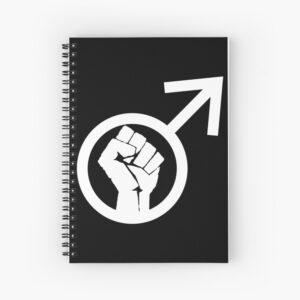
On our first anniversary, I remember bending over trying to protect my head and my internal organs as his forearms rained on my back while he screamed “I do everything for you. Why can’t you just be f*cking happy?” Every word punctuated by a blow. He told me later that he didn’t use fists because he loved me so much. His “love” resulted in my back becoming a large, purple bruise. After he said I could call the police, and he would wait on the porch for them.
I didn’t. I wish I had. All I said, curled fetal on the edge of our marital bed, was to say “sweetie, if you’re going to hit me, please close the windows so the neighbors don’t hear.”
Those words are among the many that I still scream into pillows when I am overcome, even years later, by how weak I thought I was.
After a time, with abuse, your idea of what is normal shifts into a strange and rocky world. I fought back in the beginning, but if you kick a dog enough times it will learn to lick your hand, believing you will still give it love.
He railed against feminism, which he regarded as a cancer.
The word feminist was akin to a slur in our home, a double-wide on the outskirts of Olympia by the edge of a swamp.
To my ex-husband, feminism was the thing that hurt him. His mother, who I never met, was tantamount to the most evil person that has ever exited, not taking into account that his father, an alcoholic Lutheran preacher and physics professor had knocked up my ex’s mother on a lab bench when she was 18 or 19 years old at the Lutheran college where he taught. He then was obligated to marry what was likely just a scared child. My ex adored his father and said nothing but unkind things about his mother, who bore her sad and angry spouse several children and, as far as I’m concerned, did the best she could under the circumstances. Yet somehow she was the villain in my ex’s mind, and after I had given up fighting and opted to play a quiet possum in the face of his rage he would tell me that I was cold, just like her. In the rare occurrences where I fought back, the joy in his face, that he had another excuse to hurt me, still haunts me.
I have met, known, and loved many men who were survivors of abuse. Sometimes their mothers were culpable in their abuse, or in some circumstances, the perpetrators.
He spoke, often lovingly, of the time he was failing math and his father held a gun to his head while he studied algebra. Given how much fantasy was involved in his recreation of the past, I don’t know if this is even true, but he believed it was and in this case, that’s very much the same.
When I first found out about Men’s Right’s Activism, I was thrilled because yes, there are a lot of things in our culture that are very much a men’s issue. I thought, in my 21-year-old optimism that these so-called MRAs were fighting for men’s mental health, perhaps raising money to open domestic violence shelters for male survivors of abuse.
This was not the case. This was before Gamergate, which for those who do not know involved a video game developer who happened to be a woman being taken to task by an ex who decided that her success in her field was because, of course, she used her feminine wiles to manipulate men into doing what she wanted. She received death threats, and the toxic morass of reddit boards celebrated her trauma. She deserved it. She was asking for it.
Every time I would cry, he would be angry because my tears were clearly not a response to his behavior, but a way to manipulate him into doing what I wanted.
“Did you know,” he would grin, his teeth snapping “that women’s tears lower men’s testosterone? That’s why women cry. It’s an evolutionary thing. Women who can manipulate their partner with tears, survived.”
The irony of this was utterly lost on him.
I fought back in the beginning, but if you kick a dog enough times it will learn to lick your hand, believing you will still give it love.
One of the things I really don’t care for in the stereotypical Lifetime movies about abuse is the man is painted as just garbage all the time. This does a disservice to survivors, because those who have not been abused think that the survivors were just stupid, staying with the person that hurt them so badly. That’s not how it works. For every low, for every night I spent in stomach-clench fear that tonight was the night he would kill me, there were also dizzying highs. And I firmly believed that if I loved this objectively broken person enough, he would be ok.
The holes in the walls of our home told a very different story.
He would break things, telling me he broke them so he wouldn’t hit me, and I was grateful.
He would speak lovingly of the strong women he knew and admired, but if I read any women authors that he had not previously approved of, he would express concern that I was being indoctrinated into feminism. And I was grateful for these warnings.
When I suggested couple’s therapy, he said he wanted a male therapist because a female therapist would clearly take my side.
He would tell me I was abusive, and I believed him. I have journals full of dissonance, where I wrote about how I was the worst person, about how he was the kindest man who only hurt me, who only hit me, because I was so bad that I drove him to it. If I had been a decent woman, a good wife, he never would have needed to do that. Clearly, this was all my fault.
I left him about half-way through our marriage. His best (and only) friend, a lovely and unendingly patient man named John, had purchased a farm in Red Bluff, California. A friend of mine from college came to work with us because frankly we had no idea what we were doing.
My ex became convinced that I and my college friend were sleeping together, which we authoritatively were not. He had one of his famous temper tantrums and set up a tent in the yard. Meanwhile John, my friend, and I were smoking pot in John’s bedroom. Both men were aware of the teeth-grinding awkwardness that my ex had slathered over the evening and were doing their absolute best to make me feel better by just acting normal.
From the window, came a baritone bellow.
“How LONG have you BEEN F*CKING?” He screamed.
“We aren’t f*cking, dude.” Came the reply.
“You are a liar, and you are a whore, and I can do better.” The words bounced off the dry hills and I was gifted with a cold certainty that I had to leave, or he would kill both me and my friend.
I packed everything and touched my ex’s shirts hanging in the closet with tears in my eyes, asking John to please take care of him. I took my sh*t, and my 13-year-old dog in a U-Haul, leaving my beloved 1991 Toyota previa at the property so they were able to get food in town.
He apologized, and I didn’t care. It was over.
But then, my sweet little Lady dog, who had been given to me for my Bat Mitzvah, died. I firmly believe that if she hadn’t, I would not have gone back to spend four more years at the mercy of a man who could not admit he was wrong and took his wrongness out on the one person who loved him.
You can call me stupid, or foolish, if you like. That is unkind, but not incorrect. My optimism is an odd thing, rearing its head at the most inopportune times and I need you to understand that I cringe on a daily basis at every concession I made that chipped away at my bleeding, breaking heart. When I tell these stories to my present-day boyfriend, he knows not to ask why I stayed. Please, do not ask a survivor why they stayed. Ask them anything else. Ask them what well they drew on, what burbling source of life kept them alive. Ask them anything besides why they stayed.
I stayed because I loved him. I stayed because I thought if I could get it right, he’d forgive me for not paying enough attention to him when I had a paper due in college. I stayed because I thought if I was perfect enough, we could maybe have a family.
I firmly believed that if I loved this objectively broken person enough, he would be ok.
He got me pregnant, once. I had gone off the pill, because according to him the pill made me “crazy” and I’d be nicer if I weren’t on all those hormones. We were having sex and I told him I was ovulating and to please, please not ejaculate in me.
He did, and I found out I was pregnant 7 weeks later.
At the time, we were living with my mother. John, my ex’s best (and again, ONLY friend) had recently lost his own mother, so my ex was sometimes away helping him clear out the house. In those rare moments where he wasn’t around, I woke my mother up and told her. She looked at me, with a strange mix of love and pity that I will never be able to forget.
“You don’t have to tell him, you know.” And every part of me rebelled.
The mass of cells multiplying in me was half him. I could not and would not consider not telling him. The abortion was a conclusion we both came to, agreed on. We cited the Ray Bradbury story about the terminated fetus that came back when the parents were ready. We were adults, making an adult decision.
We went to Planned Parenthood. I got a medical abortion. I was offered pain-killers, but refused because I genuinely believed I deserved the shivering agony that tore me open.
He held me while I cramped, screamed, and wept on the floor of my mother’s guest bathroom. It was one of the few kind things he did for me. In retrospect, it was just another time he got to feel important because I needed him.
I still remember his arms around me as I rocked, screaming, on cold tile. It was the last kind thing he ever did for me, besides finally leaving.
After the fact, he told everyone who would listen that I had aborted our child without telling him.
A friend of mine in Olympia’s father hit her so hard a bruise bloomed on her pale temple and my ex quietly went about making what he called a ‘kill-kit’, to remove her father from the world.
He was not ok with any woman being hit, but it was ok he hit me. He was lauded for his protection of women, how evolved he was. But when I was weary of him calling me over to his computer to look at something he thought was funny after the tenth time in an hour, it was because I didn’t care about him, not because I had been trying to write a final essay for class for the past two days.
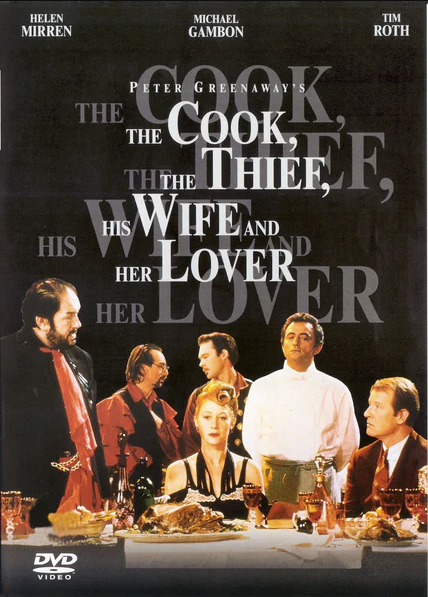
In another memory, I am laying on his chest as we watch one of my favorite moves, The Cook, The Thief, His Wife, Her Lover. Unbeknownst to me, he hated it because it painted men as either monsters or martyrs. I could feel his heart beat fast and angry as my head pressed against him.
When it was over, he asked “did you like that? Did you like the movie where men are either terrible or they die because they are good?”
He could have just said he didn’t want to watch the movie. But no. He wanted to punish me for liking a movie that made him angry. Lots of movies made him angry.
We watched Fight Club once, and he wrapped my throat in his stubby hand and held me against a wall and said “I know what I’m supposed to be now. Thank you for showing me.”
If he felt for one moment that he was not the center of my universe, I was the worst person ever. I was the center of his universe, after all. Every single thing he did was for me, including, apparently, forgetting to pay the power bill for 6 months. Including the nine years where he never had a job besides the seasonal one I managed to cajole my manager at Fred Meyer to get him or the farm jobs we worked after I graduated where I firmly indicated that we were a package deal. Including every time he mocked things I liked, like Ani Difranco or Dresden Dolls.
A gilded cage is still a cage, but my cage was not bejeweled. It was rusty and stank of fear, strewn with garlands of broken teeth and a jaw that to this day, still clicks when I chew too hard.
During the last year of our marriage he convinced himself he was dying of kidney failure. After swanning around dramatically for months, after me coming home every night to the shared house in Oakland, California to him being just SO DRAMATIC, after he screamed at me that I would not let him pass away because I was so pathetic and lonely that I could not be without him, after I drove him into the woods where he told me he would die, only after all of this could I finally get him to go to the hospital.
He was fine. Physically, anyway.
And you’d think, that after all that, he’d be happy he wasn’t dying, but he just yelled about how I only got him to go to the doctor because I wanted to prove that I was right, that he was a “liar and a malingerer.”
The story he told himself after was that he, who apparently was some mix between Wolverine from X-Men and an actual god, had digested his bad kidney and grew another one.
I told him he needed to get a job, and he said that was the meanest thing I’d ever said to him.
He left me for his former boyfriend, who after about six weeks tried to kill himself because my ex convinced him that his anti-depressants were making him less than who he was.
My ex told anyone who would listen, including his family he briefly reunited with, that I was the one who’d convinced that sweet, sad man to try ending his life.
Because like his mother, I was the enemy.
I hesitate to talk about the patriarchy in a grand scale, mostly because people much smarter and erudite have said everything that I’d like to say in a much neater way.
What I will say is that abuse can come from any and all genders, but only cis-men think it is their right to abuse. The men who abuse are not the cartoonish versions we see on the lifetime channel; they are, like everyone, complicated beings. They don’t think they are abusive. They think they have been patient, that you have pushed them, that it is your fault that they swing their fists and fury at your body, at your being.
To anyone listening, please hear me when I say just because someone says the right things about women, says that you are so strong, they can still turn around and hurt you. And when they do, please run.
Even if I don’t know you, please send me a message. I know where you are, I know the depths of your sorrow, I know what it is to look in the mirror and think you have failed.
You haven’t. And your entire life awaits you. Do not be daunted by the road ahead. I have walked it and so many others have too. Our tracks will guide you, friend. I won’t tell you that you’re strong, because you probably don’t feel like you are, and that’s ok. You don’t have to be strong. You don’t have to be anything besides yourself.
I believe in you. And someday you’ll believe in you, too.
PART TWO.
Susan Warren
There is a misconception that in the United States, things like malnutrition and child brides do not occur. But as long as we remain a patriarchal society, unsupported, uneducated mothers and their children remain vulnerable to such dangers everywhere, even in the United States.
Believe me, I know from experience.
If we think of patriarchy as a dominant social system, a system where one portion of humanity exploits and dominates another portion of humanity, where everyone is struggling and competing for resources then its opposite would be a partnership social system where resources are shared for the benefit of all, where the health of an individual means greater health of the community, where healthy happy children mean a healthy happy future. More like a cooperative village rather than a tiered hierarchy. I can’t help but wonder how a partnership model of living might have produced a different outcome for me. As it was though, I fell prey to a sexual predator at age 14. This podcast, Breaking Down Patriarchy has inspired me to begin to tell my story. It’s my hope that the telling of it will keep me grounded on my healing journey, and perhaps inspire others to open their hearts and minds to imagine a better world. If we can dream it, we can attain it. This podcast is paving the way and I would love to participate.
So let me give you some background. In the 1950s my parents were on course to live the American dream. They married in their early 20s as was common then, and quickly settled into gender roles where my father was the breadwinner and my mother happily began her life as a stay-at-home mom. I was the firstborn and would be the only daughter. But the dream wouldn’t last long. By the time my mother had her third child, my father had a growing restlessness, and he started to wander. I was mostly oblivious to their initial strife as I was busy being a kid, discovering a deep love for music and dance. I had an active imagination and I would fantasized about life as a ballerina. I lived all day long in a tutu and tights and I danced everywhere. My parents hardly noticed. They had other concerns.
In 1963, the Beatniks were paving the way for the hippie revolution. Timothy Leary would soon urge people to “tune in, turn on and drop out” and my father did just that. He joined other restless seekers, people who craved a more authentic way of being, participating in pilgrimages to India and a communal lifestyle that had a closer relationship to the land. For three years my father lived a double life. His participation in our family dwindled as he began exploring other possibilities with other women. He tried unsuccessfully to manage both lifestyles, and he spent less and less time with my mother, and more and more time with a woman who would later become my stepmother. A woman who was also a restless seeker.
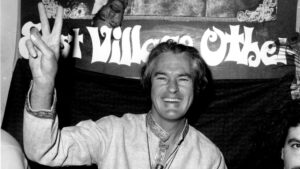
Meanwhile, my mother became suicidal. Then, when she discovered she was pregnant with her fifth child it snapped her out of it and she made the decision to live for that child. Without telling my father, she sold our house in Southern California, and hauled all of us up to Alaska to live with her best friend from high school. Her friend was married with five children of her own and they were wintering in the basement of their unfinished house, but she invited us anyway. 5 months later and 8 months pregnant, my mother decided to move us to Mesa Arizona to be near her younger brother (yes— that was a winter in Alaska and a summer in Arizona!) It would be there in Mesa that we would experience abject poverty and I would fall prey to a sexual deviant at the age of 14.
I’m choosing my words carefully. I want to be fair and accurate in the telling of this story. I used the word predator at the beginning and now I use deviant. Are these words true? If he wasn’t a predator, he would have walked away once he learned I was a child. That’s what a healthy mature bonobo ape would have done. Bonobos are genetically our nearest mammalian relative. They have a more partnership style, social order. They are unashamedly sex positive. Immature females with budding sexualities do lots of experimentation. Sometimes with mature males. The males allow it but they never penetrate an immature female. I was gob-smacked when I learned this in college! If he was not a deviant, he would not have penetrated a 14-year-old.
It was 1968 when we arrived in Mesa, Arizona. I was 9 years old with four younger brothers ages eight to newborn. After a long and intense period of postpartum depression and PTSD, my mother eventually found employment as a stock worker in the basement of JC Penney’s. Full time minimum wage kept us in groceries for about four days of the week. The other days we went hungry. Childcare was a problem and we often were left at home alone after school. There was lots of fighting. No one told me to brush my teeth. We all lacked basic care. I would lie awake at night and wonder if CPS would separate us if they ever found out.
5 years later I turned into a leggy 14-year-old. A cabinet maker, a grown man who owned a shop across the street from my house, took noticed. He asked my mother for permission to ‘date’ me. She agreed against my protests. Because of his presence I had more access to food, and I started eating better. She got a new set of kitchen cabinets. My world of puppy love and closed mouth kisses with boys my own age was over. Within two months’ time this man would sexually penetrate me.
I have not mentioned yet that the man who darkened my mother’s door was of the Mormon faith and that my father was from the poor Deep South. In both of their worlds sexual involvement with a girl this age was not unheard of. I understand now that a 14-year-old girl is most definitely still a child. This fact pains me deeply.
…as long as we remain a patriarchal society, unsupported, uneducated mothers and their children remain vulnerable
From ages 10 to 16. I would live for two months of the year in Hippie Paradise with my father and stepmother where people worked together sharing resources and responsibility. Meals came from our gardens. We all would swim and bath nude in the South Fork of the Trinity River. We were wild happy children in nature’s abundance. The other 10 months of the year were spent in Malnutrition Hell with my mother, in a cold, drafty ramshackle shack where we subsisted on government ration grade D canned ham and blocks of cheese. My mother was depressed and despondent. There were wild, unsupervised fights amongst my siblings as we grappled with neglect and scarcity. The disparity was not lost on me. I empathized deeply with my mother and in some ways absorbed her pain into my body. When I think of this situation through the lens of a partnership system, I imagine how my mother would have been more included instead of being exiled and shamed the way she was. She would have been embraced by the people in the village and her children would have been better cared for by all. As it was though, a patriarchal dominant society hurt (damaged?) my mother and her children. And I’m sure we were not the only ones.
By 16, I was legally emancipated from both my parents in order to marry the cabinet maker. Abuse is a peculiar and insidious thing. He started by always flicking the last drops of the milk in his glass into my face after the dinner I had prepared. He accused me of not having a sense of humor. He started to treat me like property. Now that we were married, and sex itself wasn’t taboo, the sexual abuse ratcheted up. I divorced him at 17. I was a senior in high school. By the grace of God, there were no children between us.
At 17 I meet a man who was as close to living on the streets as I was and we pooled our resources in the interest of mutual survival. Only months into our relationship, he would hit me, but I had nowhere to go. By the time I was 18, I was pregnant. I wanted to keep my child. I thought I could do it on my own, and I was so wrong. He was a resentful father. The emotional and physical abuse continued. I learned how to avoid most of the physical abuse by disappearing whenever he was around. He too accused me of not having a sense of humor. I was never right in any disagreement. I had no voice. I had another child just days before my 23rd birthday.
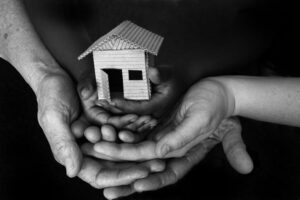
At 24 years old, I have a messy breakdown. I flee my marriage and land in a heap at my hippie parent’s doorstep still nursing my 16-month-old son, my 5-year-old left behind in flight. It would be 3 years before my ex-husband would reunite us. I would receive very little child support, and I had no means of pursuing it legally. I needed to work and my experience with domestic violence lands me a good paying job as a social worker in rural Trinity County. I set my sights on obtaining a higher education.
As a working single parent of two boys I obtained a BA in studio art and a single subject teaching credential. It took me 8 years to do this on welfare because I also worked part time and it was important to me to be there when my boys came home from school. Here’s how I thought about welfare: when I first came to California, I met a hippie woman from Santa Cruz who had the cutest little toddler girl. I asked her what she did for a living out of curiosity. She replied that she “worked for the government.” She did not look like a government worker. So I asked her what she did. And she said “I raise healthy children.” There’s a lot of shame in accepting welfare, but I kept my eye on the prize. I wanted healthy, happy children and I wanted to be a public high school teacher. I thought of welfare as my supportive community and my supportive husband. I was just finishing up my General Ed at community college when Reaganomics put a two-year cap on benefits —only enough time to learn a trade. Thankfully, I had a social service angels on the inside who got me through to my goal of being a teacher.
During this time, there was a lot of healing, soul searching and hard work. I would rediscover my deep love for dance and creativity in the Visual and Performing Arts. I would feed the soul of the dancer and the artist in me FINALLY! In a surreal moment, the summer of 1990 I would find myself leading a colorful parade of 30 drummers and dancers through the streets of downtown Chico, California. I, the disappearing battered woman, was now the founder of a thriving community drum and dance troupe, leading a parade. It is a moment I could have never imagined 10 years prior.
It is this love of dance that lands me my first teaching job as an art and dance instructor at a high school in the California East Bay area delta. I would receive Teacher of the Year twice in my 25-year career there. I had found my niche. I was finally thriving. I kept a special eye out for students who were having trouble at home.
22 years ago I adopted a 16 year old student of mine who was being neglected and I consider her my “daughter from another mother.” She’s the one who dropped everything and moved in to take care of me when I was diagnosed with stage 4C ovarian cancer two years ago. There’s nothing like a radical reproductive surgery and six rounds of chemo to make you reevaluate and reflect on your life. Healing from that experience literally rips the scars off of all those old wounds. I grieve intensely for the 14-year-old in me, I grieve for the young mother. I grieve for my body now. I am cancer free but damaged. I now have a lifelong condition called lymphedema and it runs my life. As a yoga and dance teacher I understood the lymphatic system a little bit and now I have a deeper, experiential understanding of it. It’s all about flow! The telling of this story has been an emotional ‘heavy lift” and my body knows it. I’ve learned to understand the value of observing and releasing grief as it arises in the body—the stored collection of “issues in our tissues” and the need to let those emotions flow when they arise — wisdom I have attained from my father and stepmother who discovered Vipassana meditation — the seekers found what they were looking for! Even though it has been a struggle, the telling of this story is helping me process and release those “issues in my tissues” It’s my sincere hope that bringing situations like mine into the light will help create the changes being called for in this podcast. I hope it will have a butterfly effect and guide our grandchildren and our species as a whole toward a more peaceful existence on this planet.
If we can dream it,
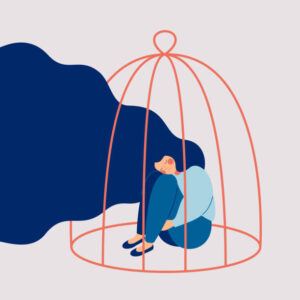
we can attain it.
Listen to the Episode
&
Share your Comments with us below!



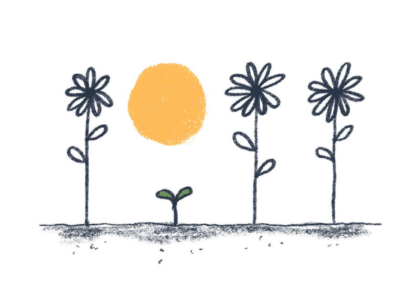
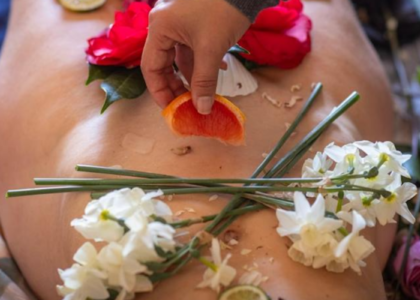
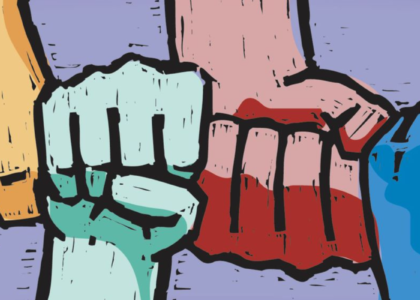
Thank you both for this sharing of yourselves, your journey, your pain, your healing and your process! I know one of you, and am amazed and have always been in awe of your strength even before reading this and now I know why I have always felt you to be a remarkably deep and strong soul! I wish you both all the beauty life can bring you and that you never have to endure the hurt of your past again…